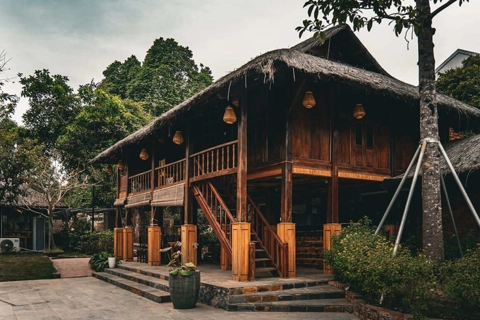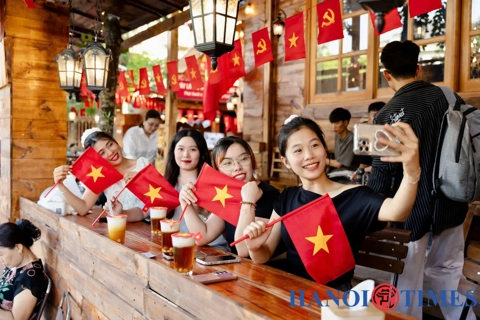Saving tourist sites from tourism
Many experts are worried that too much tourism can lower the quality of heritage locations – and even lead to its destruction.
They're trying to work out how heritage can be commercially exploited without losing its aesthetic appeal to Vietnamese and others who treasure it.
Nguyen Thu Hanh, director of the Scientific Union for Sustainable Tourism Development, said in Viet Nam many officials used heritage to serve tourism, but not all of them fully understood the heritage or its soul.

"I feel sad and regretful when I see many heritage sites have been downgraded and lost their value after being over exploited for visitors," Hanh said.
"We inherit a treasure of intangible heritage from our ancestors, but we don't always use it carefully and effectively to gain the best benefit."
In her opinion, authorities and managers have to increase their own awareness and knowledge to know how to use the outstanding values of heritage.
To Ngoc Thanh, chairman of the Viet Nam Folk Arts Association, said he is upset when don ca tai tu (talented instrumental music and singing), an accepted part of UNESCO's Intangible Cultural Heritage of Humanity, is performed to entertain tourists while they eat.
As tour timetables are so tight, tour managers often arrange for tourists to enjoy the performance during the meal. While instrumentalists and songstresses perform their talent and try to introduce the beauty of the world recognised heritage, tourists eat and talk to each other.
Thanh said most audiences did not realise the beauty of the music and certainly did not understand the meaning of the lyrics.
"I feel unhappy when such fine music is performed at restaurants and the talented musicians received a trifle from restaurants' owners and travel companies," said Thanh.
"Heritage should be honoured in a different space. It should be performed on a formal stage in a proper old building so that the audience can concentrate.
"We have tried to promote and preserve the tangible and intangible cultural heritage in general and don ca tai tu in particular, however, the work hasn't been done properly."
Hanh agreed, saying that don ca tai tu – and other heritage music – had its own life and space. "Some people believe that they can promote heritage and introduce it at any time, any place, that's not true," she said. "If we don't respect the heritage's space, we will never understand its essence."
Hanh said people often exploited heritage to serve tourism, but ignored or did not really understand its quintessential meaning.
"Travel companies offer tours to see the sights of Ha Long Bay, which is what I call the heritage's shell," said Hanh. "They haven't researched the hidden values, including origins, legends, history, and local culture to give visitors a feeling of perspective."
She said world nature heritage was often not promoted properly and often damaged the very environment it was supposed to respect and protect.
"The development of tourism and urban planning with many hotels with disordered architecture undermine heritage space, mangrove forests and the environment" said Hanh.
To promote heritage through tourism, Hanh suggested that authorities should understand the essence of what was being offered. This meant improving the knowledge and awareness of the people employed to look after tourists.
Ninh Binh becomes a national tourism centre
The northern city of Ninh Binh will be developed into a national-level hub of culture, history and tourism.
This follows a master urban planning scheme recently passed by Prime Minister Nguyen Tan Dung, which will expand the city into a metropolis of about 4 million by 2030.
Ninh Binh, the capital of the province of the same name, is home to such well-known tourist destinations as Bai Dinh Pagoda, the newly recognised UNESCO cultural and natural heritage site of Trang An, Cuc Phuong National Park, Kenh Ga hot mineral spring, and Tam Coc-Bich Dong site.
The city will also develop rural eco-tourism, traditional trade villages, and a waterway to connect tourist sites.
Bui Van Manh, vice director of Trang An's managing board, said classes would be held each month to upgrade the knowledge and awareness of tour guides and the local people who live near the heritage site.
People will be equipped with professional skill, knowledge about the sites, words in foreign languages and responsibility to protect the heritage








